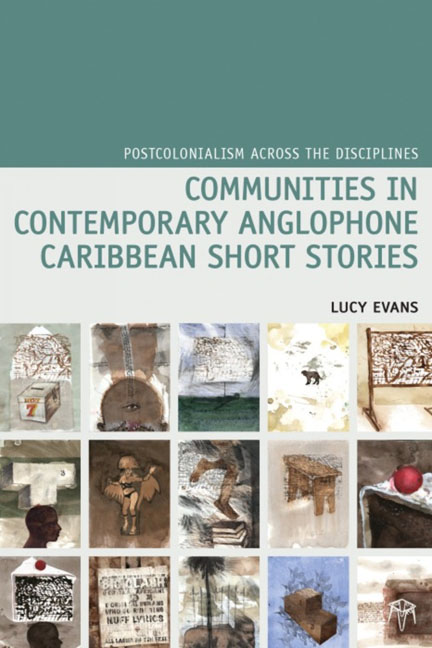
-
- This book is no longer available to purchase from Cambridge Core
- Publisher:
- Liverpool University Press
- Online publication date:
- July 2020
- Print publication year:
- 2019
- Online ISBN:
- 9781789623451
- Subjects:
- Literature, Literary Texts
Last updated 09/07/24: Online ordering is currently unavailable due to technical issues. We apologise for any delays responding to customers while we resolve this. For further updates please visit our website: https://www.cambridge.org/news-and-insights/technical-incident


This book examines the representation of community in contemporary Anglophone Caribbean short stories, focusing on the most recent wave of Caribbean short story writers following the genre's revival in the mid 1980s. The first extended study of Caribbean short stories, it presents the phenomenon of interconnected stories as a significant feature of late twentieth and early twenty-first century Anglophone Caribbean literary cultures. It contends that the short story collection and cycle, literary forms regarded by genre theorists as necessarily concerned with representations of community, are particularly appropriate and enabling as a vehicle through which to conceptualise Caribbean communities. The book covers short story collections and cycles by Olive Senior, Earl Lovelace, Kwame Dawes, Alecia Mckenzie, Lawrence Scott, Mark Mcwatt, Robert Antoni and Dionne Brand. It argues that the form of interconnected stories is a crucial part of these writers' imagining of communities which may be fractured, plural and fraught with tensions, but which nevertheless hold together. The book takes an interdisciplinary approach to the study of community, bringing literary representations of community into dialogue with models of community developed in the field of Caribbean anthropology. The works analysed are set in Trinidad, Jamaica and Guyana, and in several cases the setting extends to the Caribbean diaspora in Europe and North America. Looking in turn at rural, urban, national and global communities, the book draws attention to changing conceptions of community around the turn of the millennium.The book is the first monograph on Caribbean short stories. It is the first book-length study to directly address the subject of community in Anglophone Caribbean literature. The book covers the work of eight critically acclaimed Caribbean writers. Due to the centrality of short story writing to the development of a Caribbean literary tradition, the book offers readers an accessible introduction to the broader field of Caribbean literature and culture. With its interdisciplinary approach, the book will appeal to Caribbeanists working in social science disciplines as well as those working in literary and cultural studies.
 Loading metrics...
Loading metrics...
* Views captured on Cambridge Core between #date#. This data will be updated every 24 hours.
Usage data cannot currently be displayed.